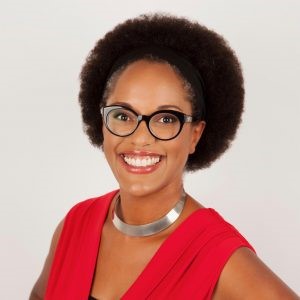
Content warning: This article discusses sexuality, private parts of the body and mentions sexual assault and rape, but not in detail.
People sometimes get nervous about attending my presentations. ‘Sexuality and Relationships’ is such a broad term. They wonder what I am going to say. It can bring up feelings of embarrassment, curiosity, anxiety, bad memories and so on. I’m acutely aware of this, so I work hard to make sure that people feel as comfortable as possible while I discuss this potentially sensitive topic. I’m down to earth and I’m happy to speak openly and frankly about this stuff.
Since moving to Brisbane from the UK in 2014, I realised that there was a lot of caution about talking about sexuality in the disability services I worked in. People worried about bringing it up. They were concerned about the consequences.
On the contrary, I passionately believe that not talking about sexuality in these contexts causes a lot more problems, and that we are doing people a disservice when we don’t address issues of sexuality. People with intellectual or cognitive disabilities are at significantly increased risk of sexual abuse and exploitation. By overprotecting people, we are leaving them unprotected. (BILD 2015). We need to be educating people, not failing them by hiding behind caution and excuses. I let people know that sex should be good, but it can be bad. I help people to understand that abuse, assault and rape isn’t ‘sex’. I talk to people about their rights, choices and responsibilities. I educate, enable and support people in the area of sexuality and relationships.
For example, it is important that people, including children, know the correct names for their private parts. Penis for males. Vulva and vagina for females. The vulva is what you see on the outside of a female’s body, the vagina is inside. Alongside this education, people need to know what a safe, helping or ‘ok’ touch is, and what an unsafe touch is. I don’t talk about ‘bad touch’ because that is confusing. A ‘bad touch’ can feel good. It is better to talk about an ‘unsafe’ or ‘not ok’ touch. People need to know what to do if someone touches or requests inappropriate touch. They need to keep telling until someone does something. People need to know about body autonomy, that they get to decide what happens to their body. They also need to know about pleasure – feeling good in their own skin. Knowing about self- pleasure, and that if they choose to self-pleasure or masturbate, that this is normal, natural and ok – when it is done in PRIVATE.
I founded Consentability in 2016 to meet the needs of people with intellectual and cognitive disabilities and their support network. I am incredibly lucky to have opportunities to work with a range of people, with different needs, hopes and goals.
I eagerly accepted the invitation to speak at the recent AusDoCC conference in Brisbane, May 2018. I started off by explaining that ‘sexuality’ is more than just sexual feelings or sexual intercourse. It includes the following:
Sensuality – awareness and feeling about your own body and other people’s bodies. How your skin likes to be touched – e.g. tickles, firm, short or long strokes
- Intimacy – the ability to be emotionally close to another human being, and accept closeness in return
- Sexual identity – a person’s understanding of who they are sexually, including gender identity, gender roles and sexual orientation – heterosexual, homosexual, bisexual, pansexual. We also talked about asexuality – whereby people do not experience sexual attraction. This is not a choice, like celibacy, it is just how people are. They still date, are attracted to people and may want a relationship.
- Reproduction and sexual health – sexual intercourse, contraception, conception, pregnancy, childbirth, sexually transmitted infections etc.
- Sexualisation – the aspect of sexuality in which people behave sexually to influence, manipulate or control other people. It can range from relatively harmless e.g. flirting, to violent, cruel and criminal e.g. sexual assault, rape,
I answered a few questions in the big group, then later we had small discussion groups where I answered different questions. I was so impressed by how people were brave and open.
Some of the things I talk to people at my Consentability clinic:
- How to meet a potential partner
- Managing difficulties with empathy
- Managing difficulties of expectation
- Dealing with anxiety in relationships
- Dealing with differences re: physical affection
- How relationships and sexual activity happens
- The difference between real life and pornography
- Keeping safe and being ‘streetwise’
- Saying no, accepting no
- Knowing your enthusiastic yes
- Consent. Consent.
I’m looking forward to being the Sexuality and Relationships Advisor for AusDoCC, and sharing more information with you all.
BILD (2015) ‘Unprotected, overprotected: meeting the needs of young people with learning disabilities who experience, or are at risk of, sexual exploitation’. www.bild.org.uk
Dr Natasha Alexander
